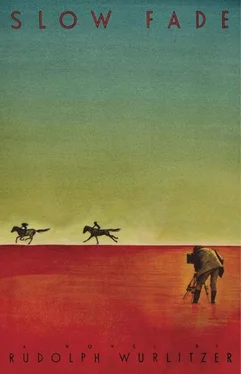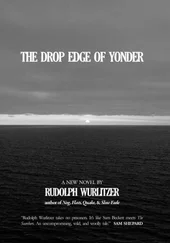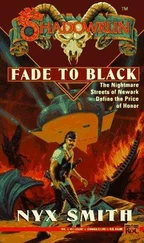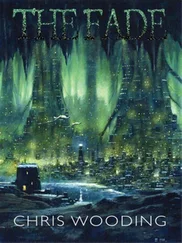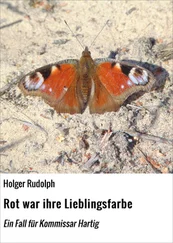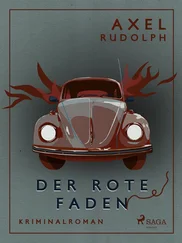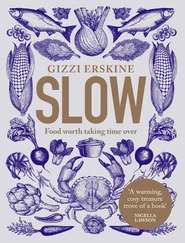“He won’t be home for another few hours. I’m his wife.”
Walker asked if she knew Lama Yeshe.
“Lama Yeshe?” The question had an unsettling effect. “What do you want with Lama Yeshe?”
“I knew him in India.”
She stopped pulling up the carrots and walked over to him, wiping her hands on her pants. “You knew Byron in India?”
“I met him once. In New Delhi. How is he?”
“All right,” she said in a way that implied the opposite.
“Look, you’re not going to stay here, are you? The last person that came from India stayed for months and it wasn’t good for any of us.”
“I want to find out about my sister. That’s all. Byron knew her over there.”
She turned away, not wanting to meet his eyes. “Clementine?”
“Yes, I’m looking for her.”
She wearily faced him. “Byron and I made a deal not to talk about anything involving India, Nepal, Sri Lanka, Thailand, or points east. I just haven’t learned how to handle any of it.”
“Any of what?”
She laughed, shrugging her shoulders. “Oh, you know. Karma and samsara. Lamas and their mamas. The Buddha, Dharma, and Sangha. The action of nonaction. Clementine. Enlightenment. Any of those hit tunes. But there I go, it’s quicksand. Why don’t you go and see Lama Yeshe? He’ll drive you crazy trying to talk English and leave you more confused than ever.”
“I only want to ask him one question.”
“I know. He’ll tell you, too. He works in a frame shop on the corner of Eldridge and Macy. You can’t miss it.”
Walker told her he would come back the next day to see Byron. Then he drove down to the corner of Eldridge and Macy. When he reached the shop the proprietress, an old woman with blue-tinted hair, told him Yeshe was in back. Walker found him stacking wooden crates against the wall. He wore blue jeans and a green golf jersey with a small alligator sewn over the breast. He had allowed a helmet of thick black hair to grow back over his scalp, although Walker noticed that the roots were white where an apparent dye job had worn off.
“Lama Yeshe?” Walker asked.
Lama Yeshe didn’t answer, continuing to stack crates.
“Yeshe?”
“Ah.”
“I’m Clementine’s brother. I met you in New Delhi.”
“Ah. . Clementine.”
Yeshe kept all stacking up the crates, refusing any help from Walker. After he finished, he separated a pile of frames into different sizes, hanging them on their designated pegs. Then he held up a frame for Walker’s inspection. “My job,” he said, his finger following the rectangular shape. Pulling a small dictionary from his pants pocket, he leafed through it until he found the word he wanted. “Image prison maker. No freedom for picture. Very good job. Freedom for me.” He slipped into a red nylon warm-up jacket, and they went out to the front of the shop.
“Good night, Yeshe,” the old woman said, looking up from where she had been balancing the books.
“Good night, Mrs. Orlovsky. You are happy?”
“Not happy, not sad,” she said mechanically, as if they had gone through this many times before.
“Good,” Yeshe replied.
“Not good. Not bad,” she said.
“Ah, very best. You not fire me?”
“Not for all the black men in China.”
“To the river?” Yeshe suggested.
They got into the van and Walker drove outside of town. The river valley was hot and they drove past apple orchards that were being harvested and dense fields of corn and alfalfa. After a while they crossed some railroad tracks and parked near a wooden pier. At the end of the pier a man and his small son fished for eels and beyond them in the river a speedboat went round and round in a large circle. It was only after they had sat down on a cement bench facing the river that Yeshe spoke.
“I remember Clementine.”
“My wife and I were looking for her. My wife died and I came home. It’s taken me all this time to find you.”
“Your wife is dead?”
“Yes. On the road to Benares.”
Yeshe looked directly at him and held up two fingers. “Wife and sister dead. Mother dead?”
“Yes. But you said Clementine was dead?”
Yeshe held up three fingers. “All women dead. Must take female inside.”
“I beg your pardon?”
“Never mind.”
“How did Clementine die?”
“Mind not so bad. Lungs very bad.”
“Pneumonia?”
“Maybe. Anyway, dead.”
The speedboat had stopped making circles and was floating idly in the middle of the river. “You said her mind was okay?” Walker asked. “Does that mean her death was free of pain and suffering?”
Yeshe walked over to the river’s edge and poked around, returning with a cracked milk bottle. Placing the bottle on the bench next to Walker, he went off again, gathering up pebbles. When he had enough he came back and dropped them into the bottle. He shook the half-full bottle so that the pebbles made a loud rattle.
“Noisy mind,” Yeshe said. “Much fear.”
Then he filled the bottle up to the brim so that when he shook it there was no sound. “Full mind,” he said. “No fear.” Letting the pebbles spill out until the bottle was empty, he said: “Empty mind. No fear.” Then he selected two pebbles and dropped them inside the bottle and shook it slowly so that there were only separate clinks. “Clementine’s mind,” he said and handed the bottle to Walker.
Walker filled the bottle halfway with pebbles and shook it loudly. “Walker’s mind,” he said. “Very noisy. Very scared.”
Yeshe laughed and shook his head in agreement and they sat silently with the setting sun slanting in across the river. The speedboat had sped away somewhere and the man and his son who had been fishing for eels had left. No one was about except for an old woman in a faded yellow housecoat walking a puppy with a tightly held leash made from a piece of rope. The image of the old woman as she constantly yanked the puppy by the neck made Walker inexplicably sad and tears formed in his eyes. Yeshe wasn’t watching, staring down at the ground and moving his lips in silent prayer.
“Never mind,” Yeshe said. He took out a small notebook from his jacket pocket and tore out three empty pages. Handing the pages to Walker he asked him to “Write mother name. Sister name. Wife name.”
Walker wrote the names and handed back the pages. Yeshe carefully folded them up, one inside the other, and put them in his pocket. Then he gathered up scraps of wood and newspaper and started a small fire. When the fire was going he handed the folded pieces of paper to Walker, nodding for him to throw the paper into the flames. After another round of prayers, he clapped his hands three times, and that was the end of it. Bowing to Walker, he walked away, down the railroad tracks toward the city.
“Wait,” Walker cried, running after him. “I’ll drive you home.”
Yeshe whirled to face him, his eyes wrathful and unyielding. “Don’t follow. You’re the car. I’m foot.”
“You’ll get lost,” Walker insisted.
“Lost?”
“Disappear. Separate. Become cut off.”
Yeshe whipped out his dictionary and looked up the word. “No loose,” he said and looked up another word. “No loose. No target.”
“The city is your target.”
“No city. Only one foot, then another. No one, no thing, no where. I loose all. Very good fortune for me. You stay and watch smoke. Sister, mother, and wife all go in smoke. Wave good-bye. Then walk loose forever.”
With that he turned and walked down the tracks.
Walker watched the smoke until the fire had burned down to ashes. Then he got into the van and drove aimlessly through the countryside. When night fell he stopped at a roadside tavern and drank three rounds of straight bourbon. A Star Wars movie was playing at a drive-in down the road and he bought a bottle next door and drove in, turning off the sound and watching the images. The images didn’t help, and he lay down on the seat and sipped the bourbon straight out of the bottle. When the film ended he stayed to watch the credits, looking for names that he knew. He thought he recognized the art director’s name and possibly the assistant wardrobe man, but he wasn’t sure. Everyone else was unknown to him. That was as it should be, he thought, and drove back to the motel, where he finished the bottle of bourbon.
Читать дальше
